Simon Dietz

Simon Dietz is Research Director of the Grantham Research Institute on Climate Change and the Environment. He is also Research Director of the TPI Global Climate Transition Centre, and Professor of Environmental Policy in the Department of Geography and Environment. He is co-editor of the Journal of the Association of Environmental and Resource Economists, a CEPR Research Fellow, a CESifo Research Network Fellow, and a Fellow of the Royal Society of Arts. He is a former Vice President and Council Member of the European Association of Environmental and Resource Economists, and was a Food System Economics Commissioner.
Background
Simon has worked at LSE since 2006, co-founded the Grantham Research Institute in 2008, and served as Co-Director of the institute from 2011 to 2017. Previously, he worked at the UK Treasury, as an economic adviser on the ‘The Stern Review on the Economics of Climate Change’. Simon holds a starred first-class honours degree in Environmental Science from the University of East Anglia (including a year at the ETH Zurich), and Masters and PhD degrees from LSE, specialising in environmental policy and economics.
Research interests
- climate change
- environmental/resource economics
- integrated assessment modelling
- public/welfare economics
- insurance
- corporate sustainability
- climate finance
Prospective PhD students
Simon welcomes enquiries from prospective PhD students with shared interests and a strong background in economics or related disciplines.
– Visit the ‘Study with us’ page for further information on applying to be a PhD student with us.
Research
Research - 2026
The authors of this paper examine the scientific evidence, particularly the application of IAMs to corporate emissions pathways, and provide guidance for litigators, experts, courts, and policy-makers as they navigate the evolving legal landscape of corporate climate responsibility. Read more

Research - 2025
The authors of this paper estimate that combining all food system measures may reduce yearly mortality by 182 million life years and almost halves nitrogen surplus while offsetting negative effects of environmental protection measures on absolute poverty. Read more

The authors of this paper calculate the economic value of methane emission abatement efforts and find that reasonable actions could reduce climate-related damages in 2050 by more than a trillion dollars a year while costing only one sixth of the damages they would avoid. Read more

The authors of this paper couple multiple domain-specific models into a large-scale integrated assessment modelling framework capable of quantifying the outcomes of different food-system scenarios for incomes, health and the environment up to 2050, at a highly disaggregated level. Read more

The author of this paper analyse the large and diverse literature on technical change in integrated assessment models (IAMs) of climate change, with a view to understanding how different representations of technical change affect optimal climate policy. Read more

As the climate is changing, the global economy is adapting. This paper describes a novel method of estimating climate adaptation... Read more

Research - 2024
This survey reveals that experts believe the literature underestimates the social cost of carbon (SCC) due to an undersampling of model structures, incomplete characterization of damages, and high discount rates. To address this imbalance, the authors of this paper train a random forest model on variation in the literature and use it to generate a synthetic SCC distribution that more closely matches expert assessments of appropriate model structure and discounting. Read more

This paper assesses the effect of technical change on optimal climate policy in integrated assessment models, which provide key inputs to decision-makers for economically efficient climate policies. Read more

Research - 2022
How best to make the transition from a high- to low-carbon economy remains open for debate, involving complex dynamics that go beyond basic models of emissions abatement. It is these dynamics that the authors aim to analyse with the model they develop in this paper, showing that it is optimal to repurpose and strand a substantial amount of capital. Read more
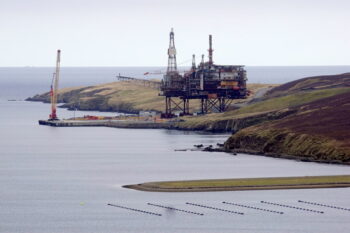
As the climate is changing, the global economy is adapting. This paper provides a novel method of estimating how much adaptation has taken place historically, how much it has cost, and how much it has reduced the impacts of climate change. Read more

Presentation given at the launch of the Transition Pathway Initiative (TPI) Global Climate Transition Centre on 18 October 2022. The presentation focuses on how major global energy companies are doing as regards the management and governance of their carbon emissions, as well as their carbon emissions pathways. Read more
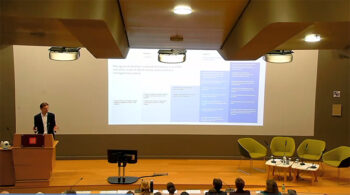
Melting of the Antarctic Ice Sheet (AIS) could contribute metres to global sea level rise (SLR) in the long run. The authors of this paper couple models of AIS melting due to rising temperatures, SLR, and economic impacts of SLR on coastlines worldwide. Read more
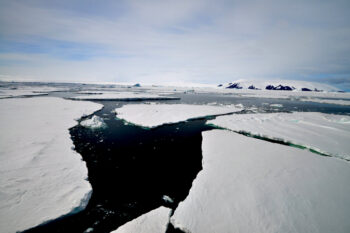
Research - 2021
The oil and gas (O&G) industry faces an existential threat from the transition to a low-carbon economy. Companies are increasingly... Read more

This paper shows that economic models of climate change produce climate dynamics inconsistent with current climate science models. Read more

The authors of this paper develop a new model to estimate the economic impacts of climate tipping points, such as disintegration of the Greenland Ice Sheet. Read more
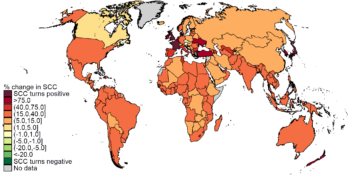
Advice to the Biden administration as it seeks to account for mounting losses from storms, wildfires and other climate impacts.... Read more

Research - 2019
We exploit recent advances in climate science to develop a physically consistent, yet surprisingly simple, model of climate policy. It... Read more

The authors of this paper apply a newly developed insurance pricing model to two catastrophe model data sets relating to hurricane risk in two locations in the Atlantic basin, estimating ambiguity loads – the extra insurance premium due to ambiguity – and showing how these depend on the insurer’s attitude to ambiguity. Read more

There is a considerable body of evidence showing that our preferences exhibit both reference dependence and loss aversion, a.k.a. the... Read more

The authors of this comment respond to a recent argument put forward by Lemoine and Rudik (2017), that it is efficient to delay reducing carbon emissions because there is substantial inertia in the climate system. Mattauch et al. show that there is no such inertia, which means there is no lag between carbon emissions and warming. Read more

Research - 2018
Corporations are an important source of GHG emissions and important actors in mitigating climate change. This paper presents and analyses... Read more

The economic case for limiting warming to 1.5°C is unclear, due to manifold uncertainties. However, it cannot be ruled out... Read more

Research - 2017
Abstract We study how stochasticity in the evolution of agricultural productivity interacts with economic and population growth at the global... Read more

The authors of this paper have built a model of economically-efficient carbon dioxide emissions, which provides solutions for economically optimal peak warming of the planet, optimal emissions along the transition to peak warming, and optimal carbon prices, including under a temperature constraint consistent with the Paris Agreement. Read more

Abstract The world is banking on a major increase in food production, if the dietary needs and food preferences of... Read more

Abstract How does climate-change mitigation affect the aggregate consumption risk borne by future generations? In other words, what is the... Read more

Abstract Many insurance contracts are contingent on events such as hurricanes, terrorist attacks, or political upheavals, whose probabilities are ambiguous.... Read more

Research - 2016
Lanz, Bruno, Dietz, Simon and Swanson, Tim (2016) Global population growth, technology and Malthusian constraints: a quantitative growth theoretic perspective.... Read more

Many insurance contracts are contingent on events such as hurricanes, terrorist attacks or political upheavals, whose probabilities are ambiguous. This... Read more

Abstract How large a risk is society prepared to run with the climate system? This is a question of the... Read more

Abstract We investigate the effect of domestic politics on international environmental policy by incorporating into a classic stage game of... Read more

There is a considerable body of evidence from behavioural economics and contingent valuation showing that our preferences exhibit both reference... Read more

Abstract Our efforts to put the brakes on climate change or adapt to a warming climate present a fundamental tradeoff... Read more

This paper examines the question of whether fighting climate change has the additional advantage of reducing the aggregate risk borne by future generations. This raises the question of the ‘climate beta’, i.e. the elasticity of climate damages with respect to a change in aggregate consumption. Read more

We study how stochasticity in the evolution of agricultural productivity interacts with economic and population growth, and the associated demand... Read more

This paper considers the macro-economic consequences of the continued expansion of particular forms of intensive, modern agriculture, with a focus... Read more

Global population growth, technology, and Malthusian constraints: a quantitative growth theoretic perspective Read more

Headline issue Investors and financial regulators are increasingly aware of climate change risks. So far, most of the attention has... Read more
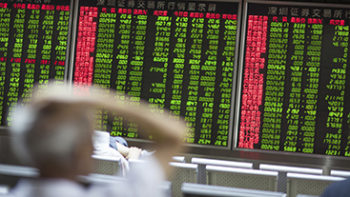
How large a risk is society prepared to run with the climate system? This is a question of the utmost... Read more

Many investments involve both a long time horizon and risky returns. Making investment decisions thus requires assumptions about time and... Read more

Research - 2015
‘To slow or not to slow’ (Nordhaus, 1991) was the first economic appraisal of greenhouse gas emissions abatement and founded a large literature on a topic of worldwide importance. We offer our assessment of the original article and trace its legacy, in particular Nordhaus's later series of ‘DICE’ models. From this work, many have drawn the conclusion that an efficient global emissions abatement policy comprises modest and modestly increasing controls. We use DICE itself to provide an initial illustration that, if the analysis is extended to take more strongly into account three essential elements of the climate problem – the endogeneity of growth, the convexity of damage and climate risk – optimal policy comprises strong controls. Read more

Research - 2014
Since Nicholas Stern published his influential 'Review on the Economics of Climate Change' for the British government in 2006, economists have become increasingly interested in how the value of climate policy, especially the reduction of greenhouse gas emissions at the global level, depends on risk and uncertainty. New lines of research make the case that mitigating climate change is above all an exercise in catastrophic risk management. Read more

This Handbook takes stock of progress made in our understanding of what sustainable development actually is and how it can be measured and achieved. Read more
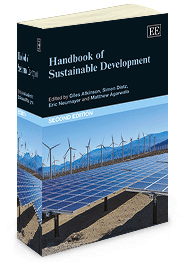
Endogenous growth, convexity of damages and climate risk: how Nordhaus’ framework supports deep cuts in carbon emissions Read more

Published in: Environment and Development Economics. Vol 20, Issue 03, June 2015, pp 380 – 406. DOI: 10.1017/S1355770X14000692, Published online:... Read more

Research - 2013
Abstract Conventional benefit–cost analysis incorporates the normally reasonable assumption that the policy or project under examination is marginal. Among the... Read more

Working Paper 137 Abstract Many investments involve both a long time-horizon and risky returns. Making investment decisions thus requires assumptions... Read more

Working Paper 136 Abstract Economic evaluation of climate policy is notoriously dependent on assumptions about time and risk preferences, since... Read more

Abstract It has recently been highlighted that the economic value of climate change mitigation depends sensitively on the slim possibility... Read more

Environmental and Resource Economics. Economic evaluation of climate policy traditionally treats uncertainty by appealing to expected utility theory. Read more

Abstract When a natural disaster hits, the affected households try to cope with its impacts. A variety of coping strategies,... Read more

Research - 2012
Working Paper 91 Abstract When a natural disaster hits, the affected households try to cope with its impacts. A variety... Read more

Working Paper 87 Abstract The theory of international environmental agreements overwhelmingly assumes that governments engage as unitary agents. Each government... Read more

Abstract This note considers the treatment of risk and uncertainty in the recently established ‘social cost of carbon’ (SCC) for... Read more

Abstract Empirical evaluation of policies to mitigate climate change has been largely confined to the application of discounted utilitarianism (DU).... Read more

Research - 2011
Abstract To what extent does economic analysis of climate change depend on low-probability, high-impact events? This question has received a... Read more

Abstract There are many examples in policy-making, investment and day-to-day life where the set of contingencies the decision-maker can conceive... Read more

Working Paper 54 Abstract This note considers the treatment of risk and uncertainty in the recently established ‘social cost of... Read more

Working Paper 42 Abstract Empirical evaluation of policies to mitigate climate change has been largely confined to the application of... Read more

Dietz, S., Michie, J., and Oughton, C., editors. 2011. Routledge, Abingdon. Read more

Abstract In this article, we compare two high-profile strategic policy reviews undertaken for the U.K. government on environmental risks: radioactive... Read more

Research - 2010
Abstract There is an increasing demand for putting a shadow price on the environment to guide public policy and incentivize... Read more

Abstract The design of environmental policy raises several equity issues, in particular the distribution of benefits and costs. At the... Read more

Working Paper 18 Abstract Conventional cost-benefit analysis incorporates the normally reasonable assumption that the policy or project under examination is... Read more

Research - 2009
Working Paper 13 The aim of this paper is to consider, from an ethical point of view, the role that... Read more

Working Paper 9 Abstract To what extent does economic analysis of climate change depend on low-probability, high-impact events? This question... Read more

New frontiers in the economics of climate change Read more

Working Paper 5 Abstract We compare two strategic policy reviews undertaken for the UK Government on environmental issues: radioactive waste... Read more

Abstract Arguments about the appropriate discount rate often start by assuming a Utilitarian social welfare function with isoelastic utility, in... Read more

Abstract In this final rejoinder to the symposium on “The Economics of Climate Change: The Stern Review and Its Critics,” we respond... Read more

Abstract In this chapter we assess the role of economics in governance for sustainable development. Firstly, we ask how has... Read more

Research - 2008
Abstract There may never have been an instance of environmental pollution to challenge our powers of analysis and evaluation quite... Read more

Policy
Policy - 2023
This report presents the results of the first data release of Assessing Sovereign Climate-related Opportunities and Risks (ASCOR), an investor-led... Read more

Assessing Sovereign Climate-related Opportunities and Risks (ASCOR) is an investor-led project to develop a free, publicly available, independent tool that... Read more

Policy - 2022
This report and brief provide improved estimates of the likely economic damages from climate change to the UK, highlighting where the greatest risks and need for adaptation are. These are translated into loss of socioeconomic welfare and reported as an equivalent loss of the UK’s GDP under two different policy scenarios – one in which current policies continue and another in which strong mitigation policies are put in place. Read more
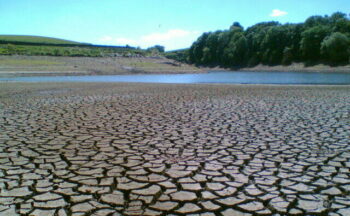
Policy - 2021
The authors of this chapter review the UK’s emissions performance so far and sketch out the main measures needed to implement the legislated emissions path. They then highlight four strategic interventions that could help to unlock those changes. Read more

Policy - 2017
This paper sets out responses to selected questions from the the UK government's consultation on its proposal for a more streamlined and effective energy and carbon reporting framework. Read more

Policy - 2016
This report is part of Finansinspektionen´s (FI’s) response to a request from the Swedish government to “Analyse and in a... Read more

Policy - 2015
This report identifies around 12 to 20 minerals or mineral groups, which are critical in the OECD today. Read more

Policy - 2014
Sam Fankhauser, Simon Dietz and Phillip Gradwell Read more

Policy - 2011
Research Institute on Climate Change and the Environment, London School of Economics with Simon Dietz and Alex Bowen. August 2011... Read more

Policy - 2010
Headline issue Climate change is one of the most significant challenges we face. It will impact the UK population, environment... Read more

Policy - 2007
Simon Dietz, Dennis Anderson, Nicholas Stern, Chris Taylor & Dimitri Zenghelis. World Economics 8.2, pp.229-258, 2007 – Link to publisher Read more

Simon Dietz, Chris Hope, Nicholas Stern & Dimitri Zenghelis. World Economics 8.1, pp.121-168, 2007 – Link to publisher Read more

Books
Books - 2014
This Handbook takes stock of progress made in our understanding of what sustainable development actually is and how it can be measured and achieved. Read more

Books - 2011
Dietz, S., Michie, J., and Oughton, C., editors. 2011. Routledge, Abingdon. Read more

Events
Events - 2026
Events - 2024
Climate Change: Economics and Governance – LSE Executive Education course
Event Type: LSE Executive Education CoursesClimate Change: Economics and Governance – LSE Executive Education course
Event Type: LSE Executive Education CoursesEvents - 2022
Getting to zero requires a big push: Climate-technology treaties and the energy transition
Event Type: Public LecturesRapid methane action, tipping points in the climate system, and economic climate damages | Thomas Stoerk and Simon Dietz
Event Type: Grantham WorkshopEvents - 2020
Events - 2019
Events - 2017
Events - 2016
LSE Executive Education course | Climate change: economics and governance
Event Type: LSE Executive Education CoursesPublic lecture | Growth and Sustainability: 10 years on from the Stern Review
Event Type: Public LecturesGrantham Seminar | How a minimum carbon price commitment might help to internalize the global warming externality
Event Type: SeminarsEvents - 2015
Events - 2014
LSE Executive Summer School | Climate change: economics and governance
Event Type: LSE Executive Education CoursesSpaces for Agreement: a theory of time-stochastic dominance and an application to climate change
Event Type: Grantham WorkshopSir David King – Time for a New Policy Paradigm: resources, technology and human well-being
Event Type: Public LecturesNews
News - 2025
This news article considers how cuts to methane could help reduce the near term impacts of global warming. Read more
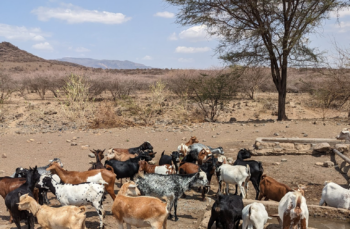
This article reports on new research that makes the economic case for meeting the Global Methane Pledge to cut emissions of the powerful greenhouse. Read more
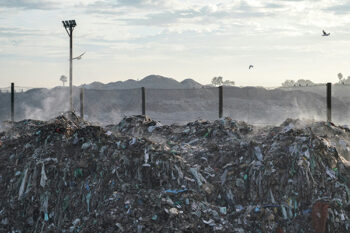
News - 2024
This article reports on new analysis by the Transition Pathway Initiative Centre that shows that banks are still open to financing fossil fuel projects. Read more
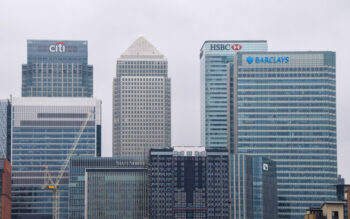
This article reports on recent research by the Transition Pathway Initiative Centre which suggests the global food industry is struggling... Read more
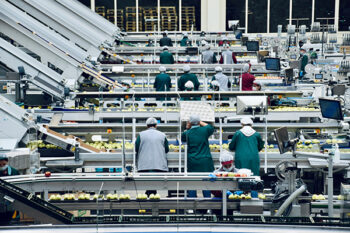
News - 2023
This article reports on a new assessment published by the Transition Pathway Initiative Centre which shows that only 1% of... Read more

News - 2022
This news article considers recent analysis on how companies are doing when it comes to setting credible net-zero targets. Read more
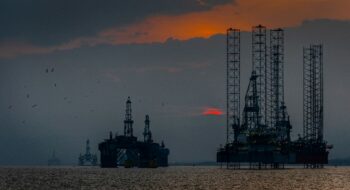
The high quality of research by the London School of Economics and Political Science has been recognised in the results of the... Read more

News - 2020
Recent analysis by the Grantham Research Institute for the Transition Pathway Initiative shed light on how ambitious the recent emissions targets set by the six largest European oil and gas majors really are. Here, the authors summarise the findings. Read more

How much progress are companies really making on climate change and to what extent are they on course to deliver the goals of the Paris Agreement on climate change? This commentary highlights the main findings from the new report from the investor-backed Transition Pathway Initiative. Read more

News - 2019
Comments by Simon Dietz on the new report by the Transition Pathway Initiative that found that about a quarter of the world’s highest-emitting, publicly listed companies fail to report their greenhouse gas emissions and nearly half do not properly consider the risks from the climate crisis in decision-making. Read more

Associated Press quote Simon Dietz, saying: “Broadly speaking we see more progress than we see backsliding. But most companies are not progressing.” Read more

Simon Dietz, Tobias Kruse, Isabella Neuweg and Lutz Sager argue that Germany should set out a clear plan for a stronger carbon price as an effective route for reducing greenhouse gas emissions that can also improve the circumstances of lower-income households. Read more

News - 2018
The European Association of Environmental and Resource Economists (EAERE) has inaugurated a new European Award for Researchers in Environmental Economics... Read more
News - 2017
FT, 7 June 2017 Read more

News - 2016
How can investors assess companies’ low carbon strategies? Are companies making a sufficient contribution to the goals of a low carbon economy? The Transition Pathway Initiative will help investors address these questions. Read more

Guardian, 14 June Read more

Financial Times, 1 May Read more

Harvard Business Review, 14 April Read more

CNBC, 5 April Read more

The Week, 5 April Read more


Reuters, 4 April Read more

News - 2014
A paper by Antony Millner (Research Fellow ) and Simon Dietz (Co-Director) of the Grantham Research Institute, and Geoffrey Heal... Read more

Existing economic models “grossly underestimate” the costs of global warming, undermining the urgency for deep cuts in greenhouse gas emissions,... Read more

Lord Stern says current models do not adequately reflect the science and the impact on global economies The Independent Read more

News - 2012
In keeping with expectations, recent multilateral climate change talks in Doha have achieved very little. Yet, the good news is... Read more

Dr. Simon Dietz, Co-Director of the Grantham Research Institute on Climate Change and the Environment at the London School of... Read more
News - 2011
Simon Dietz and Alec Morton have written one of 2011's best research articles, according to the Society for Risk Analysis, for their published paper 'Strategic appraisal of environmental risks: a contrast between the UK's Stern Review on the Economics of Climate Change and its Committee on Radioactive Waste Management'. Read more
Dr Simon Dietz of the Grantham Research Institute has contributed a section on 'Revising the social cost of carbon' in a new report on 'Climate risks and carbon prices: revising the social cost of carbon', published by the E3 Network Read more
News - 2010
The Guardian, 2 September 2010 Read more

The answers to “How much should people sacrifice today for the benefit of those living several decades from now?” vary... Read more


